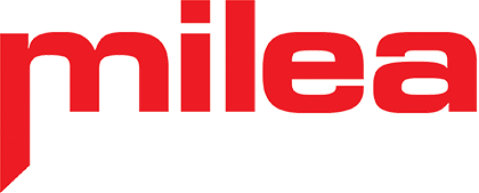PROS AND CONS: BOX TRUCKS AND CARGO VANS
As a fleet manager, when you invest in new or used trucks and equipment, you have limited resources in time and money. You want to be able to make a smart decision quickly so to keep your customers satisfied with affordable freight hauling services. One question we hear often is whether a fleet should invest in a box truck or cargo van. Each of these types of equipment handles certain types of freight.
Before making your next truck purchase or lease through Milea Truck, learn the differences between box trucks and cargo vans.
Box Truck Freight Hauling
A box truck is also known as a straight truck or cube van, not to be confused with a cargo van. A straight truck has a separate compartment for freight that is divided from the front cab where the driver sits. Behind the driver, there may be a sleeper bed or additional storage depending on whether the truck is called a hot shot or expedited box truck. These larger Class 7 trucks can also be used to handle regional trucking jobs.
The size of a box truck allows this equipment to haul anywhere from 12,500 to 33,000 pounds based on a Class 3- to Class 7-size truck. Box trucks are most commonly used in urban areas where local trucking jobs are in high demand. The smaller engine size and footprint of a box truck compared to a larger Class 8 big rig truck allows these straight trucks to navigate smaller roads.
The best freight uses for a box truck include less-than-truckload (LTL) freight. Types of LTL freight include parcel delivery, furniture hauling and perishable food delivery. Box trucks are also used to move households, deliver printed newspapers and transporting appliances.
Cargo Vans for Deliveries
A cargo van is also used to handle local trucking freight in urban centers. In fact, the cargo van is considered to be nimbler and better on fuel economy in comparison to box trucks.
However, there is a sacrifice in the amount of cargo room you have to haul freight. Cargo vans average about 100 to 200 cubic feet of space with 3,000 to 4,000 pounds payload capacity. Comparing this to the 33,000-pound maximum capacity of a Class 7 box truck, you can easily see which one will give you the most carrying capacity. Freight handlers specializing in small-scale, white-glove services for local shipping customers will find what they need in a cargo van. Types of shipping customers depending on cargo vans include cake deliverers, florists, fresh grocery deliverers and band equipment. These vans can be equipped with security devices for surveillance. You can also use cargo vans to haul packages and parcels for deliveries.
Additional Considerations
You do not have to get a Class A CDL to drive these types of vehicles. However, if you purchase or lease a box truck, you need to have a driver with a Class B CDL. For cargo vans, you are not required to have a CDL as long as the weight does not exceed 26,001 pounds. Cargo van drivers do not need to have a commercial driver's license, which can help you decide based on your driving fleet.
Choosing Box Trucks and Cargo Vans in NYC
Here at Milea Truck in New York City, we sell and lease box trucks and cargo vans to customers in need of personal, private freight hauling equipment. Our line of cargo vans and straight trucks is extensive.
We offer a wide variety of configurations and body styles to meet your company’s freight hauling expectations. In addition, we provide custom-builds for both of these equipment types. This way, you get exactly what you want, which will help you expand your trucking business.








